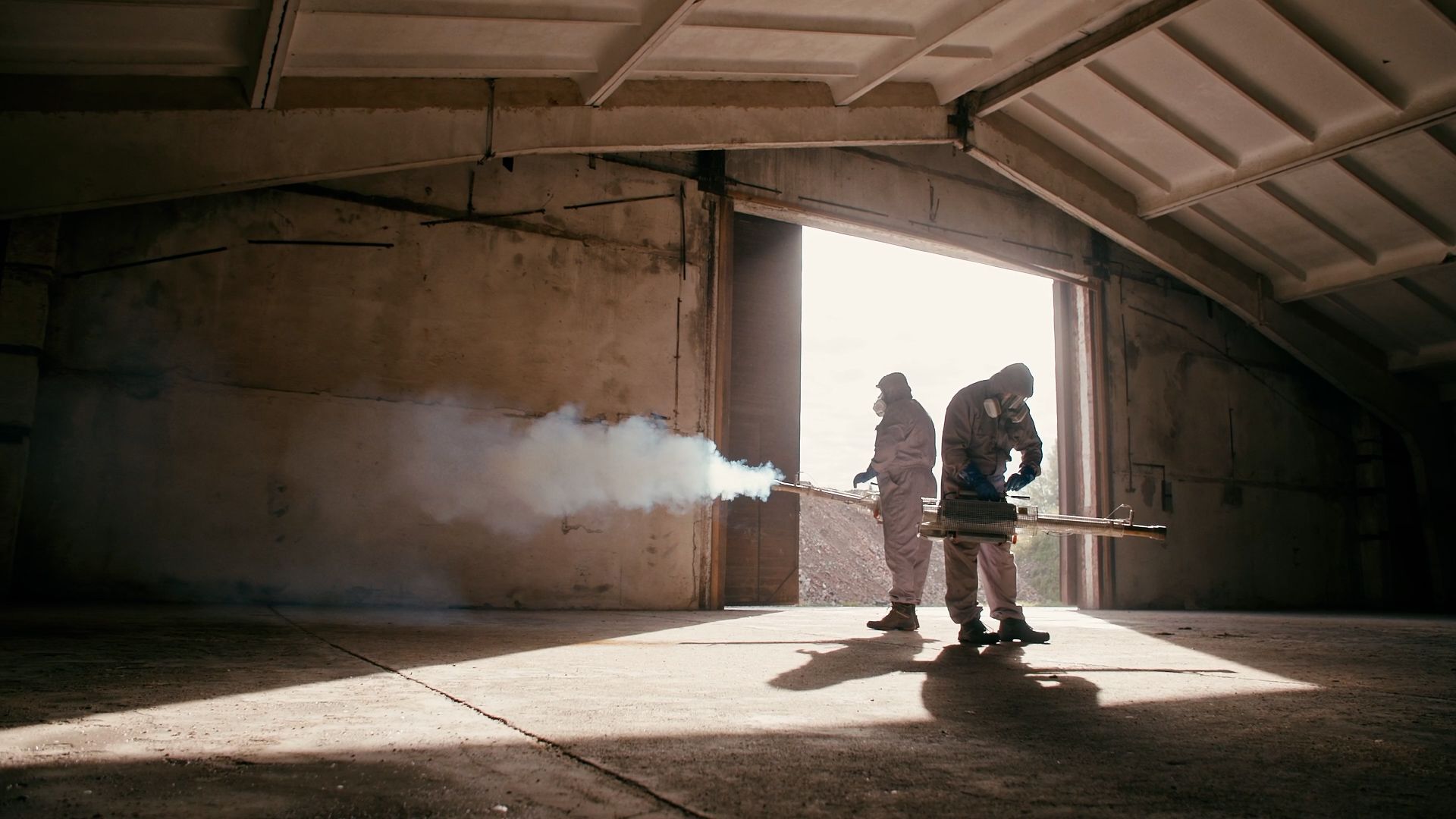Every farmer dreams of a bountiful and high-quality harvest. However, this joy is often overshadowed by unexpected guests – pests that can destroy a significant portion of the crop. From tiny insects to large rodents, they all pose a threat to the safety of our raw materials and food, causing significant economic losses to farmers and food industry companies. Ąžuolas Maštaras, the head of the pest control division at AB "Kauno Grūdai," explains how to protect your crops and other food supplies while avoiding significant losses.
Pests in storage facilities lead to financial losses
According to Maštaras, years of experience show that clients face various types of granary pests during the autumn period. These pests deteriorate grain quality, reduce nutritional value, and germination, ultimately decreasing their monetary value. Accidental pests do not attack stored grain unless the produce has been previously damaged or is in poor condition, such as being damp or moldy. The appearance of these pests indicates improper grain storage. It is also very common for water to enter the stored grain through leaky roof structures. The grain becomes damp, moldy, and heating processes begin, and the resulting odors quickly attract pests.

Fumigation is an effective method to combat pests in raw material and grain storage facilities. During this process, special gases are used that penetrate the smallest cracks and destroy pests at all stages of development. Fumigation is safe because the phosphine gas used does not harm the treated product or its quality, and no traces remain in the environment. "Fumigation can destroy grain pests, wood pests, and even parasites of farm animals. It is important to note that fumigation can only be performed by qualified and licensed pest control specialists who have the necessary qualifications, equipment, and knowledge. Specialists from the pest control division of AB "Kauno Grūdai" consult with warehouse managers and building owners on these matters and also help prevent various pests," emphasizes Ąžuolas Maštaras, head of the company's pest control division.
Birds pose no less of a problem for warehouse and cattle farm managers than insects. During the cold season, birds actively search for food and often settle in warehouses and cattle farms. In warehouses, they contaminate products with droppings, feathers, and can spread diseases and pests. In cattle farms, they live and multiply year-round, contaminating the premises and consuming the most valuable part of the feed supplied to cattle, which is financially costly.
"Birds need to maintain a high body temperature (39°C), so in the cold, they need to constantly eat. During the cold period, birds try to stay as close as possible to potential food sources. In search of food, they fly into warehouses with food products, peck through packages or bags with various food products, or simply eat grain, compound feed, or other products in open-type warehouses and farms," explains the expert. "Where possible, birds are repelled by lasers, by fencing off the premises with nets, by attaching spikes to the places where they perch, and those that are inside are caught with special traps. Our division's disinfection technicians must use all their years of experience, patience, and skills to remove the birds," shares Maštaras.
The damage caused by rodents is not limited to lost products. As experts note, uncontrolled rodents cause enormous damage in agriculture, the food industry, human households, and other areas of activity. They damage building insulation materials, gnaw through electrical wires, damage agricultural machinery, gnaw and contaminate food or other stored products, damage household items, and also spread infectious diseases, parasites, and pests.
"In agriculture, there are cases where rodents, gathering for the winter, settle in agricultural machinery parked in garages, where there are grain residues. In most cases, they gnaw through electrical cables, which later causes a short circuit and the equipment stops working, causing a lot of inconvenience and huge repair costs. Also, in order to make warm nests, mice gnaw on seats and other upholstery materials. Enormous damage is done if rodents settle in electrical switchboards or cable trenches. There have been cases where, due to a short circuit caused by rodents in electrical switchboards, fires even broke out, and the losses incurred were enormous. Rodents in grain or other raw material warehouses are the main carriers and spreaders of pests such as flour and hairy mites," says Maštaras.
The rodent control process itself, or deratization, involves a complex of various measures - monitoring, deterrence, prevention, and destruction using special methods and tools.
"We do not recommend exterminating rodents yourself, as this work requires a lot of knowledge and experience. To exterminate rodents, it is necessary to apply complex measures at once. Only a professional pest control specialist can apply what is most attractive to rodents at that time of year and in that environment. It should also be emphasized that professional-use products are twice as strong in their composition as ordinary products that can be purchased in retail chains and veterinary pharmacies. By purchasing non-professional use products, which are half as effective, customers have to buy twice as much of them, and often more money is spent than the cost of this service when purchased from professionals. There are also countless modifications of traps, which a pest control specialist selects depending on the circumstances," comments the pest control expert.
The specialists of the pest control division of Kauno Grūdai consult farms, industrial enterprises, and private individuals, providing recommendations. They provide professional, high-quality services, selecting the most suitable tools and equipment for each case.